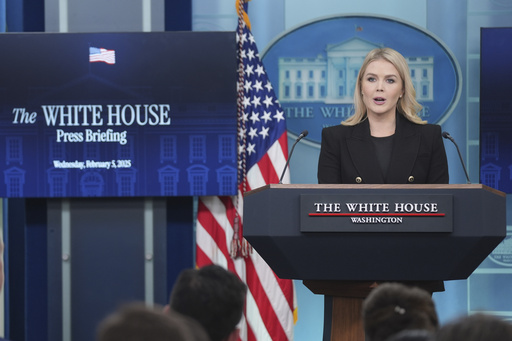
WASHINGTON — Key figures from the Trump administration expressed differing views on comments made by the president regarding the future of Gaza, particularly concerning American military presence and refugee resettlement. Trump’s statements, which he made on Tuesday, sparked concern among Arab nations and even some of his Republican colleagues, prompting Secretary of State Marco Rubio and White House Press Secretary Karoline Leavitt to clarify his remarks.
In discussing the potential resettlement of Gaza’s residents, Trump expressed hope that efforts would lead to a situation where displaced individuals would not wish to return to Gaza. He envisioned a new area where people could live safely, away from the violence currently engulfing Gaza: “If we can get a beautiful area to resettle people, permanently, in nice homes where they can be happy,” he said.
In contrast, Rubio emphasized the temporary nature of any relocation, likening it to a natural disaster response. He stated that the United States could provide assistance with debris and munitions removal as well as help in the rebuilding process so that people might eventually return home. Leavitt reiterated that the president’s intentions were focused on the temporary relocation of residents rather than permanent resettlement.
Regarding the deployment of U.S. troops, Trump suggested that the U.S. would take necessary actions if the situation warranted it. However, both Leavitt and Rubio stressed that there has been no commitment to station American forces in Gaza. Rubio framed the U.S. involvement as part of a generous offer, emphasizing reconstruction over hostility.
On the topic of long-term American oversight of Gaza’s reconstruction, Trump articulated a vision of U.S. ownership that he believed could foster regional stability. He stated, “We’re going to take over that piece and we’re going to develop it, create thousands and thousands of jobs.” He portrayed this initiative as an opportunity to transform Gaza, suggesting it could become “the Riviera of the Middle East.” He emphasized the need for residents who have faced hardship to enjoy a peaceful, improved standard of living.
Rubio clarified that the president’s remarks centered on America’s readiness to take on the responsibility for rebuilding the devastated area. Leavitt stressed the importance of U.S. involvement in these efforts to maintain stability in the region, while also underscoring that taxpayer money wouldn’t necessarily fund the initiative. Instead, she indicated that Trump would engage in negotiations to collaborate with regional partners for reconstruction funding.

